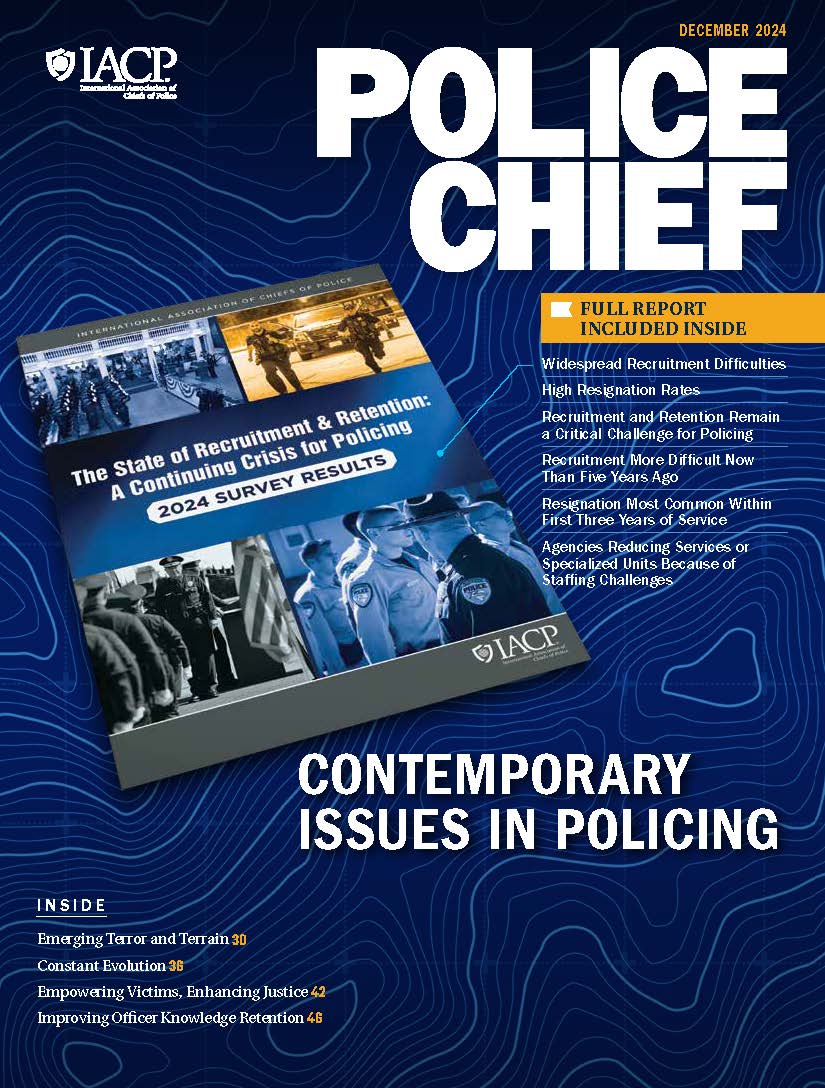Chief’s Counsel: The First Amendment in the Workplace
The First Amendment of the U.S Constitution provides:
Congress shall make no law respecting an establishment of religion, or prohibiting the free exercise thereof; or abridging the freedom of speech, or of the press; or the right of the people peaceably to assemble, and to petition the government for a redress of grievances.1
Every U.S. citizen knows what this means when a person is on the courthouse steps or on a sidewalk, but what happens when employees bring their exercise of free speech or expression into the workplace—and a public workplace at that?



